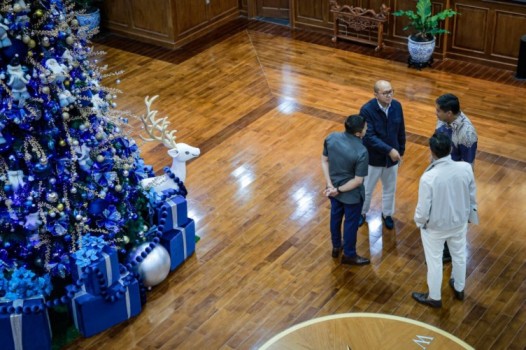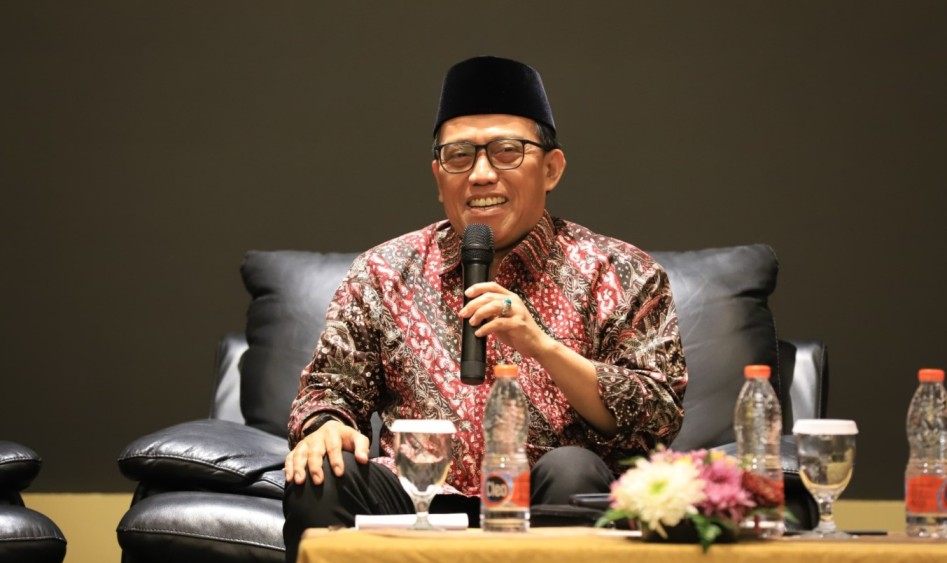News Focus – Indonesia hands over chairmanship of Coconut Community to Sri Lanka

The International Coconut Community requires optimized collaboration with many stakeholders from upstream to downstream, including farmers, entrepreneurs and governments.
Jakarta (Indonesia Window) – Indonesia’s chairmanship of the International Coconut Community (ICC) was officially handed over to Sri Lanka for 2024, at the 59th Annual Session/ICC Ministerial Level Meeting in the Indonesian province of Lampung, Wednesday (Dec. 6)
“The ICC’s mission to deal with global dynamics and challenges requires optimizing the collaboration of many stakeholders from upstream to downstream, including farmers, entrepreneurs and governments so as to contribute to the welfare of coconut farmers and stakeholders, and ensure the achievement of sustainable coconut development goals,” the Director for Negotiation of Inter-Regional and International Organizations at the Indonesian Ministry of Trade, Reza Pahlevi Chairul, said when closing the event.
To deal with the negative campaign against coconut oil included in the World Health Organization (WHO) Trans-Fat Replace Program, the meeting agreed on the ICC statement to protect the reputation and quality of coconut oil as a healthy fat, said Reza as Alternate National Liaison Officer from Indonesia for the ICC.
“For two days, we discussed and agreed on a number of efforts that producer member countries could take to continue developing the globally sustainable, resilient and inclusive coconut sector,” Reza added.
In general, the ICC member countries face challenges, such as old and unproductive coconut plants, pests and diseases, as well as the negative impact of climate change, he said, adding that efforts to improve include the development of quality and certified prime seeds using the conventional method, and cultural network needs to be done.
“In addition, it is important to promote product diversification and good quality standards, as well as the development of innovative products with added values and are competitive,” Reza explained.
According to Reza, the meeting also agreed on Ivory Coast’s accession as an ICC member country. Ivory Coast, which was listed as the 21st country to join the ICC, is the second African country to join the ICC, after Kenya.
Under Indonesia’s chairmanship, the ICC succeeded in agreeing on a commitment to developing cooperation and collective action to solve common problems and obtain economic benefits, especially in production, marketing and research in facing global challenges.
Meanwhile, ICC Executive Director Jelfina C. Alouw, who was also present at the event, stated that the joining of Ivory Coast would also benefit the ICC, as the country is one of the ‘hosts’ for International Coconut Gene Banks (ICGSs), especially in the African and Indian Ocean regions.
“Ivory Coast’s accession is expected to create more opportunities for research and development collaboration in various aspects of coconut through its germplasm collection,” Jelfina noted.
Indonesia is one of the partner countries, including India, Sri Lanka, Brazil and Costa Rica, which receives seeds from preserved coconut trees in Ivory Coast.
“This can of course have a positive impact on the ICC member countries in improving their bargaining position in the global coconut sector,” Jelfina said.
Secretary of the Directorate General of International Trade Negotiations at the Indonesian Ministry of Trade, Ari Satria, pointed out that the meeting agreed on the proposal to establish World Coconut Day as a permanent part of the United Nations (UN) program.
“This step is considered strategic to increase global understanding of the importance of coconuts in everyday life and appreciate the contribution of coconuts to the economy and community welfare,” Ari said.
“The results of this meeting reflect the strong commitment of the ICC member countries to overcome common challenges and strengthen collaboration with relevant international organizations and institutions,” he added.
Not only did the meeting reflect the success of Indonesia’s hosting, but also demonstrated the strategic steps taken by the ICC member countries to strengthen the position of the coconut industry globally.
“This achievement also shows a joint commitment to achieving sustainable development goals and improving community welfare through a sustainable coconut industry,” Ari said.
Reporting by Indonesia Window

.jpg)








